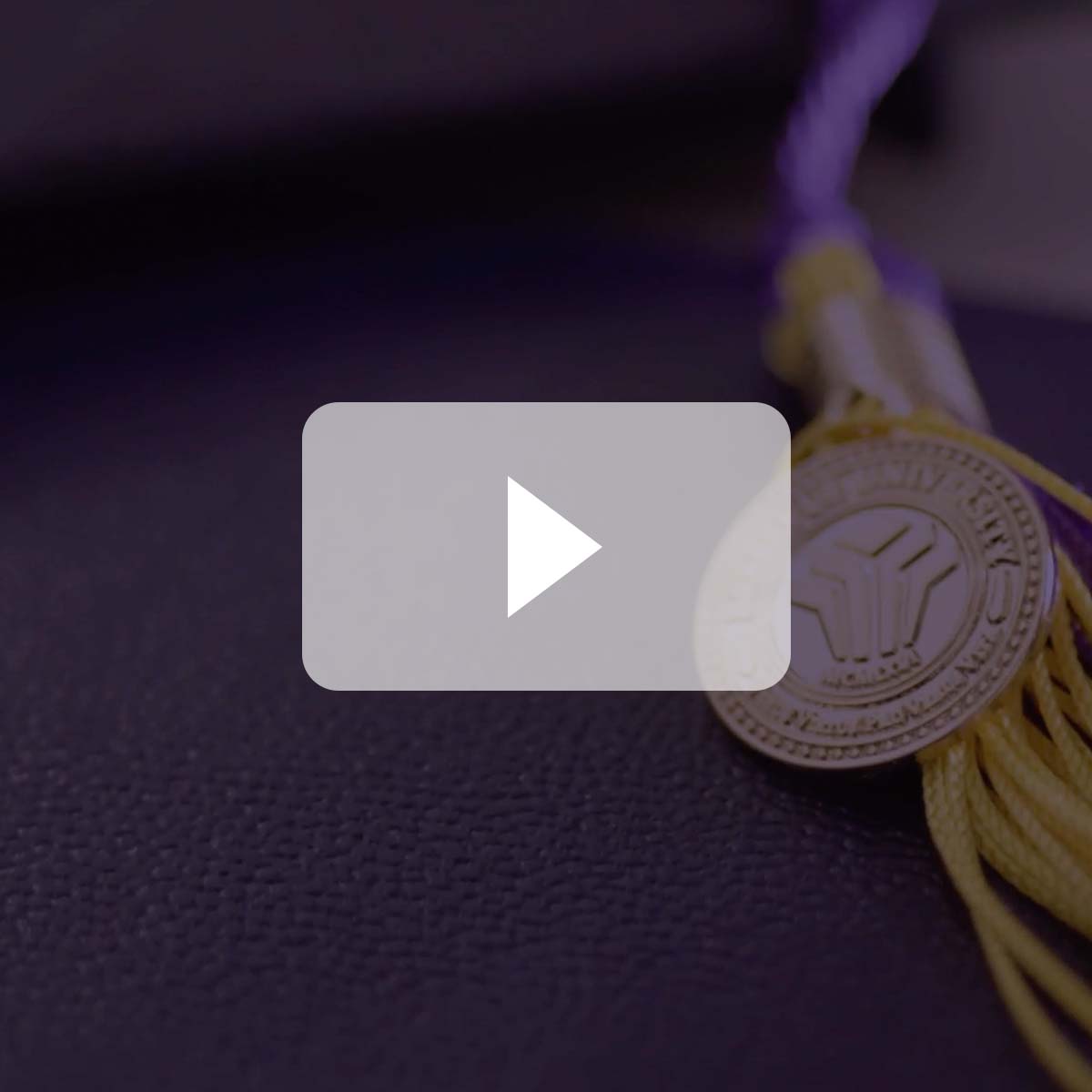How to Transfer Colleges
How to transfer colleges: A step-by-step checklist
Succeeding as a transfer student has never been easier. Whether you're currently enrolled in college, you began your degree years ago, or you've served in the military, there's a path forward for you.
But there are a few things you should keep in mind as you begin this process, from basic steps you'll need to complete to extra efforts that will make the process smoother. Read on for a complete checklist for how to transfer colleges.
5 Steps to take when transferring colleges
If one thing is certain, it's that unexpected setbacks are a part of life. No matter the reasons that have kept you from completing your degree, it's never too late or too complicated to finish what you started.
As you begin your journey toward degree completion, you'll want to set yourself up for success. You can do that by adding the following five items to your to-do list.
5 Steps to Take When Transferring Colleges |
|---|
| 1. Take stock of your existing credits |
| 2. Research transfer-friendly schools |
| 3. Complete an application and submit required materials |
| 4. Apply for financial aid and scholarships |
| 5. Map out your path toward degree completion |
Before you can truly map out your next steps, you'll want to get a clear idea of how many credit hours you've already completed. As you review your transcripts and begin piecing together which credits will transfer, there are some elements to keep in mind.
For example, your previous college's accreditation status will be among the most important considerations. Accreditation acts as a seal of approval, indicating that a school meets quality education standards. In most cases, only credits earned from accredited institutions will be honored.
You'll also want to think about the relevance of the courses you've completed. Schools like Bellevue University work hard to accept as many existing credits as possible, but other institutions may be more selective, singling out credit hours that specifically apply to the career-focused field you're pursuing. It's also true that some schools will pay closer attention to how well you performed in those classes than others.
If you completed your college courses many years ago, you may be apprehensive about whether your credits have expired. Some institutions won't consider courses completed before an established timeframe. But this isn't true at Bellevue University, whose unique approach is more focused on supporting students looking to be successful in an evolving discipline.
Finally, you'll want to consider any alternative credit options you may have participated in over the years. At many institutions, military students and those with extensive work experience can apply their training toward a degree. Exams like the DANTES Subject Standardized Tests (DSST), the College Level Examination Program (CLEP), and Advanced Placement (AP) exams allow eligible students to demonstrate their expertise and possibly earn college credit.
After examining the breakdown of eligible transfer credits, it's clear that not all schools operate with the same transfer policies. One of the most important things you can do when transferring colleges is to seek out an institution committed to honoring as many of your existing credits as possible. When you can avoid repeating courses on subjects you've already mastered, you'll be able to cut down on the time and money you put toward completing your degree.
There are various factors you can look for in a transfer-friendly college. In fact, there are online resources that highlight a number of these institutions for you. The Phi Theta Kappa Honor Society releases an annual Transfer Honor Roll that highlights which institutions are most effective in creating dynamic transfer pathways for students from all backgrounds.
Bellevue University has been named on the Transfer Honor Roll for six years running, landing in the top 25 percent of highest-rated schools nationwide. While every school is different, consider the following elements that help Bellevue University maintain its position on this list:
- Community college graduates can transfer their entire associate degree
- Accelerated programs allow students to earn their degrees faster
- Students can receive credit for military training and other alternative experience
- Transfer students don't need to worry about their credits expiring
- All students can qualify for financial aid
- Assistance is available at every step
- Credit evaluations are offered at no cost
The final list item can be particularly helpful as you plan your return to the classroom. Bellevue University offers free credit evaluations where you can work with admissions counselors to determine which of your existing credits will fulfill the credit hours required for the degree you'll be seeking.
The school also hosts a Real-Time Transfer Guide on its website — an informal tool that interested transfer students can use to see how credits from their previous schools may transfer to Bellevue University. Do note, however, that the results of this tool are preliminary and remain subject to change upon evaluation of your official transcripts.
Once you've done all your foundational research and feel confident in the schools you've identified as promising options, the process is pretty straightforward. Completing an application typically entails filling out fields related to your personal information, previous education, employment history, and the like.
In addition, some schools have additional admissions requirements you'll need to stay on top of — things like personal essays, letters of recommendation, official transcripts, and test scores. You'll need to be aware of any deadlines and begin your preparations early.
It's worth noting, however, that schools like Bellevue University are considered "open-access institutions." This means there are relatively few hoops to jump through in order to gain admission, with the goal of enabling all students to pursue an education.
What you can expect when applying to Bellevue University is an Academic Readiness Assessment. This 10- to 12-question assessment isn't designed to scrutinize your academic abilities. Rather, it's used as a tool to help give you and your academic support team a sense of the challenges you may face as you complete your degree. Some students, for example, may need some extra time to adapt to the technology used in today's classrooms. Other students could benefit from some general writing assistance.
Tuition rates at four-year universities can be intimidating. But it's helpful to remember that you're still eligible to benefit from financial aid and scholarships after transferring colleges.
Schools will often extend need- and merit-based grants to transfer students. Bellevue University offers a number of different scholarship and grant opportunities you can explore. There are also admissions counselors available who can help you walk through the federal financial aid process if you find you need assistance.
The Free Application for Federal Student Aid (FAFSA) is still available to you for federal assistance. For adult transfer students, the process may look a bit different than it was if you first completed the FAFSA as a traditional undergraduate. This is why it's helpful to get guidance from seasoned pros who can assist you in navigating the process of enrolling in a college program as an independent by federal standards.
Once you've enrolled at a new institution, the journey will only get more exciting. This is when you'll get to chart the rest of your path toward finally earning that degree. But rest assured, you won't have to do this alone at Bellevue University.
Once enrolled, each student is assigned an academic advisor called a Student Coach, who will offer continued support throughout the duration of their time at Bellevue University. The Student Coaches are trained to help students fine-tune the details of their degree completion plans and help keep them on track to graduate. Working closely with a Student Coach is often key to keeping students committed to achieving their end goals.
Complete your degree sooner
No matter your specific circumstances as a transfer student, there are schools out there committed to helping you pave your path forward. With the right amount of guidance, you can maintain the drive you need to finish what you started.
Now that you know a bit more about how to transfer colleges, it's time to find an institution that will help you succeed. You can learn more about what you should seek out in our article "How to find the best schools to transfer to: 6 Factors to look for".
Ready to see how your credits will transfer at Bellevue University?
Request a free credit evaluation today!Other resources we think you may like.
Advice for Transferring Colleges.
Transferring colleges can feel overwhelming — but it doesn't have to be. Keep these 3 things in mind.

How to Transfer Colleges
If you're looking to complete your degree, be sure to follow these 5 important steps.

Do my credits transfer? 7 things to consider.
Curious if all your credits will transfer? Read these seven considerations for college credit transfer.

How to find the best schools to transfer to: 6 factors to look for.
Learn how to find the most supportive schools for college credit transfer so that you can get the most from your experience.

Transferring from community college to university: Your step-by-step guide.
Figuring out how to balance work and college is essential for busy students. Consider these tips and tricks to successfully juggle it all.
Transfer All Your Credits
If you're headed back to school, you should get credit for all your previous coursework. Learn what makes Bellevue University a transfer-friendly college.
1000 Galvin Road South
Bellevue, Nebraska 68005
402.293.2000
402.293.2000
1.800.756.7920
1.800.756.7920
More Contact Details ›
Technical Support ›
© 2025 - Bellevue University











